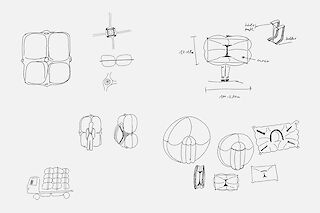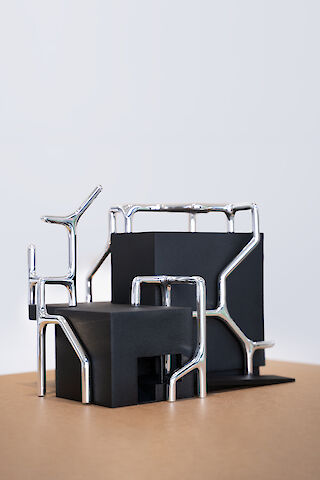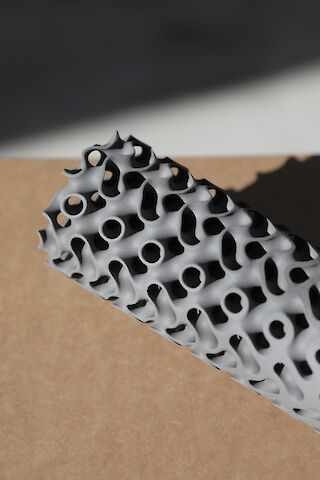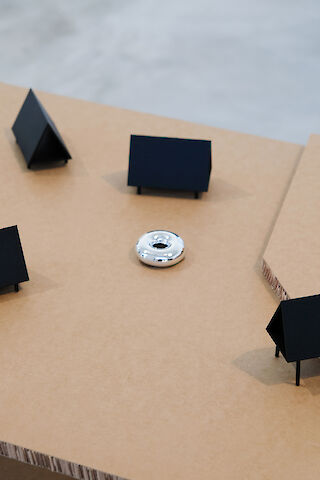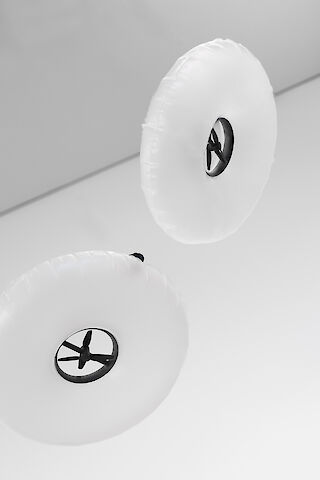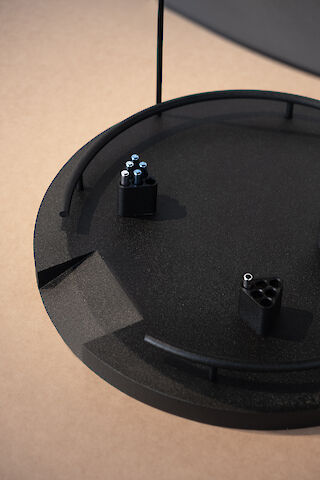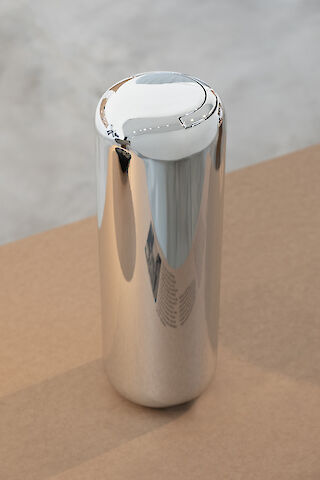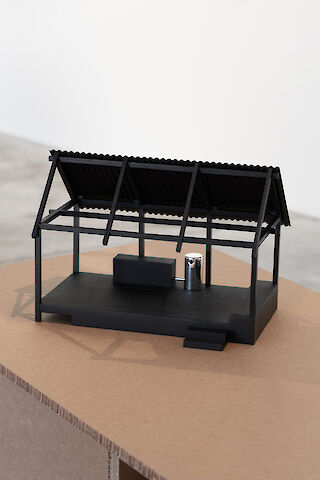Solar Fuels
Presented at mudac from March 21 to September 21, 2025, the exhibition Solar Fuels was part of the second edition of the Solar Biennale
The Solar Fuels project represents a collaboration between cutting-edge scientific research and conceptual design practice, supported by the Agora programme of the Swiss National Science Foundation. This interdisciplinary investigation addresses one of the most pressing challenges of our time: the transition from fossil fuels to sustainable energy systems.
At its core, the project bridges two complementary approaches to imagining energy futures. The scientific foundation is provided by EPFL's Laboratory of Renewable Energy Science and Engineering (LRESE), directed by Sophia Haussener, whose team has achieved breakthrough innovations in solar fuel production — including a system that directly converts sunlight and water into hydrogen, oxygen, and heat with unprecedented efficiency.
Parallel to this technical research, the project employs conceptual design methodology to explore the cultural, social, and material implications of a hydrogen-based energy system. This design investigation moves beyond conventional problem-solving to ask fundamental questions about how we might live with, store, and transport hydrogen in everyday contexts.
The project materialises through four conceptual design proposals that reimagine energy infrastructure: Pipelines that integrate hydrogen storage directly into urban architecture using Metal-Organic Frameworks; Drones that deliver mobile energy to remote communities through floating textile membranes; Hydrogen Stations that transform refuelling from transactional encounters into community hubs; and Pellets that make domestic energy tangible through solid-state hydrogen fuel.
These design propositions serve not as literal solutions, but as provocative artefacts that make abstract energy transitions concrete and discussible. By exploring the forms, interactions, and experiences that might emerge from hydrogen technologies, the project opens space for critical reflection on energy futures that extend far beyond technical feasibility.
The research was presented as part of Solar Biennale 2 at mudac (Museum of Contemporary Design and Applied Arts) in Lausanne, creating dialogue between scientific communities and broader society about the socio-technical dimensions of energy transition. Rather than presenting hydrogen as an inevitable technological solution, the project uses conceptual design to explore what kinds of relationships, infrastructures, and experiences might emerge as we move toward post-fossil energy systems.
This approach reflects a broader commitment to transdisciplinary research that recognises energy transition as not merely a technical challenge, but a fundamental reimagining of how human societies relate to materials, technologies, and each other within planetary systems.
- Exhibition curator: Scott Longfellow – mudac
- Steering Committee: Lukas Franciszkiewicz, Sophia Haussener, Jolanthe Kugler, Scott Longfellow, Julien Notter, WINT Design Lab
- Scientific research: Sophia Haussener – EPFL STI IGM LRESE
- Coordination: Romain Carré
- Graphic Design: Notter + Vigne (Julien Notter, Sébastien Vigne, Julien Savioz, Marke llic)
- Objects: Lukas Franciszkiewicz & WINT Design Lab (Robin Hoske, Felix Rasehorn) assisted by Finn Sauter, Julia Huhnholz
- Model making: David Zahner, Tim Frei
- Web Version: Stimul (David Mignot, Pierre Dumont)
- Funded by the Swiss National Science Foundation
- Photos: WINT Design Lab
- Year: 2025
